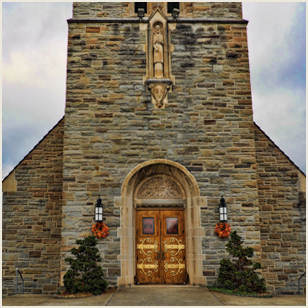Page: Quotes, Quote Topic, Spiritual (life)
Therefore let us leave untouched the senseless speculations of the masses and the false doctrines, and turn to the teaching delivered to us in the beginning, let us be temperate and ready for our prayers, persevere in fasting, and fervently implore the All-seeing God not to expose us to temptations, since the Lord has said: ‘The spirit is willing, but the flesh is weak.’
— Saint Polycarp (Second Century)
Page: Quotes, Quote Topic, Spiritual (life)
In the beginning there is struggle and a lot of work for those who come near to God. But after that there is indescribable joy. It is just like building a fire: at first it is smoky and your eyes water, but later you get the desired result. Thus we ought to light the divine fire in ourselves with tears and effort.
–Saint Synkletike (d.350)
Page: Quotes, Quote Topic, Spiritual (life)
Anyone can lead a “prayer-life”–that is, the sort of reasonable devotional life to which each is called by God. This only involves making a suitable rule and making up your mind to keep it however boring this may be.
–Evelyn Underhill (1875-1941)
Page: Quotes, Quote Topic, Spiritual (life)
But so many Christians are like deaf people at a concert. They study the programme carefully, believe every statement made in it, speak respectfully of the quality of the music, but only really hear a phrase now and again. So they have no notion at all of the mighty symphony which fills the universe, to which our lives are destined to make their tiny contribution, and which is the self-expression of the Eternal God.
–Evelyn Underhill (1875-1941)
Page: Quotes, Quote Author, Quote Topic, Spiritual (life), Teresa of Avila (1515-1582)
Our best plan is to place ourselves in the Lord’s presence, meditate upon His mercy and grace and upon our lowliness, and leave Him to give us what He wills…He knows best what is good for us.
–Saint Teresa of Ávila (1515-1582)
Page: Quotes, Quote Topic, Spiritual (life)
Whatever religious practice or observance it leads to, any teaching or discipline that fosters a stronger love of God and, through God, of our neighbours, is most acceptable to God for that reason. This love is the reason why things should be or not be, why they should remain the same or be changed. This love should be the reason why things are and the end to which all things are directed. For nothing can be considered wrong that is truly directed towards and according to that love. Without such love we cannot be pleasing to God, and without it we cannot achieve anything at all.
–Blessed Isaac of Stella (Twelfth Century)

